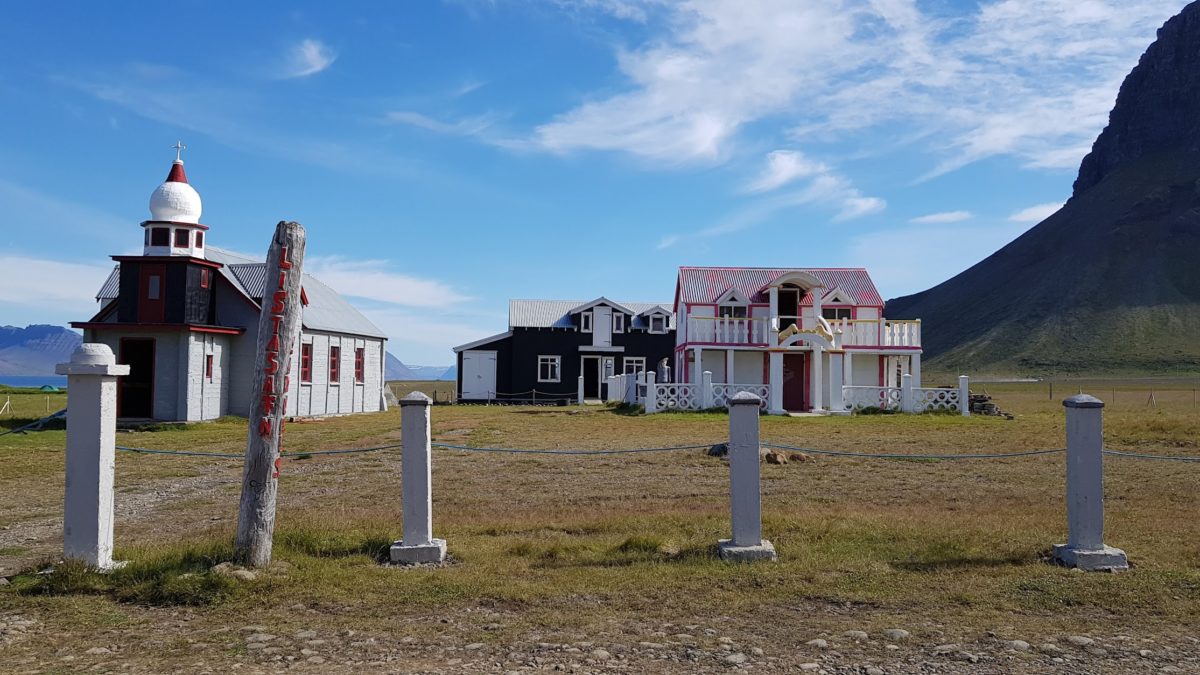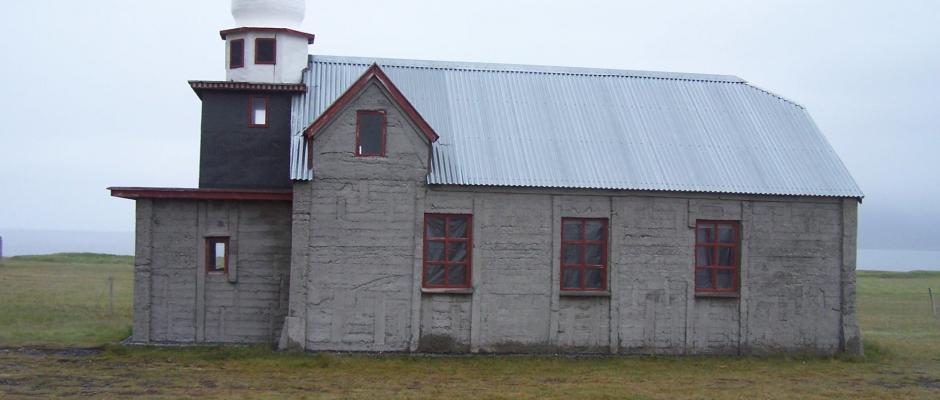Free and exclusive discount codes for hundreds of tours and & travel services in Iceland
Subscribe to instantly receive discount codes for tours, car rental, camper van rental, and outdoor clothing rental. Thank you! ❤️ Jon Heidar, Editor of Stuck in Iceland Travel MagazineSelárdalur in the Westfjords is one of the fascinating places in Iceland. A hermit created an art gallery in this incredibly remote place, complete with buildings, statues, and a fountain.
This is an update of an article originally published in 2013.
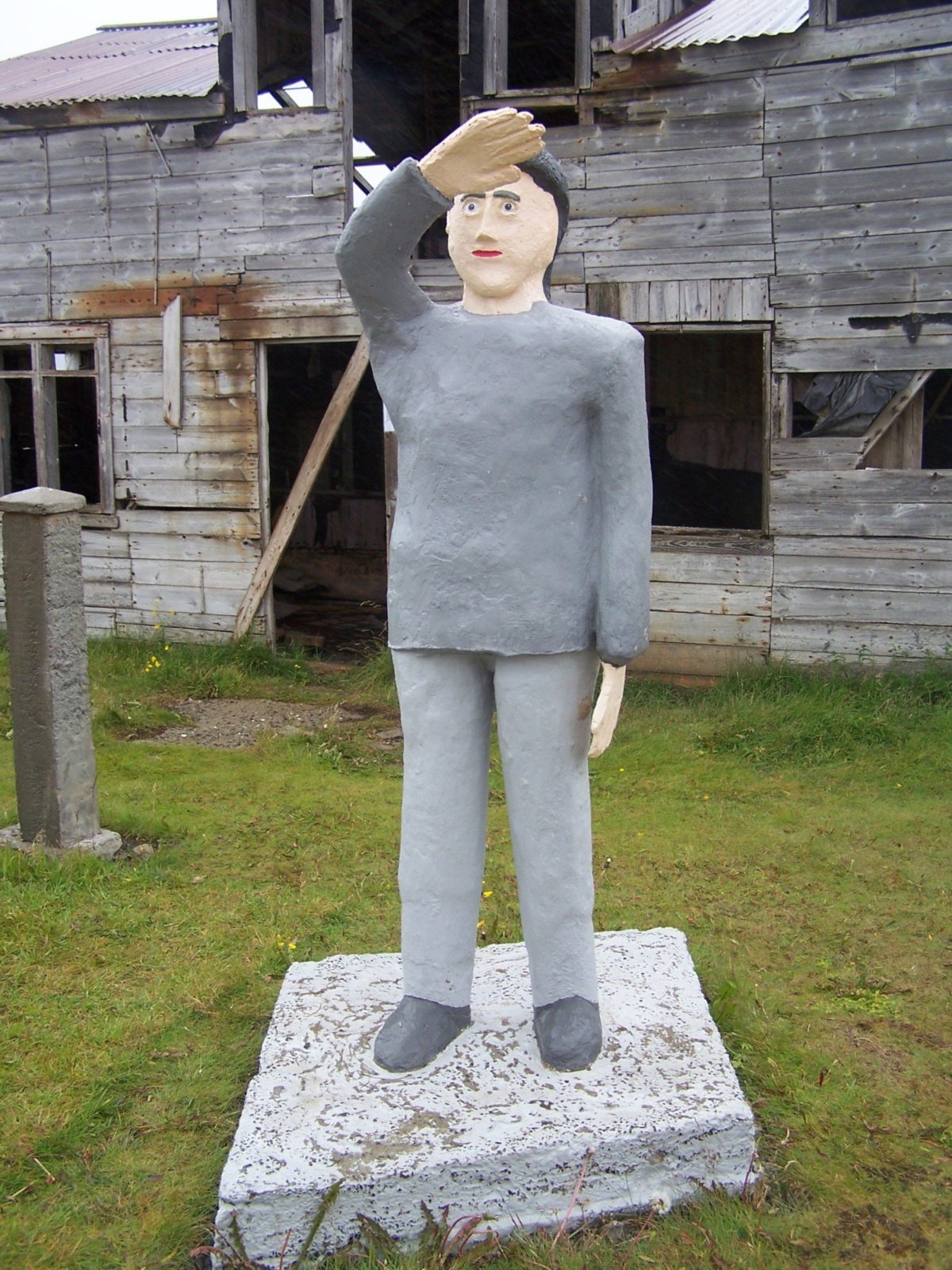
The artist at Selárdalur with the heart of a child
At the farm of Brautarholt, a farmer and an artist called Samúel Jónsson (b. 1884-d. 1969) lived alone after he retired, quietly and doggedly working on his art. One of his art creations was an altarpiece for the local church. The locals were celebrating the church’s centenary. Samúel was fond of his church and was deeply hurt when the local grandees rejected his altarpiece and decided to continue to use the old one. Samúel chose to build his church centered around his altarpiece. He built the church from local material, the driftwood and concrete made from sand and gravel from the beach near his farm.
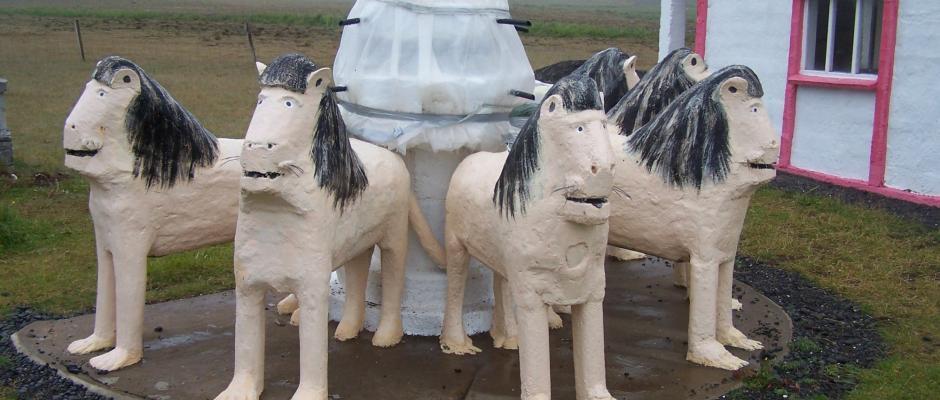
Somebody showed him a picture of The Patio de Los Leones (Court of the Lions) in Spain. Samúel decided to build his lion fountain. Samúel also created a statue of the explored Leifur the Lucky, the Viking age adventurer and discoverer of America. He also made a replica of an Indian temple and sculptures of birds and seals.
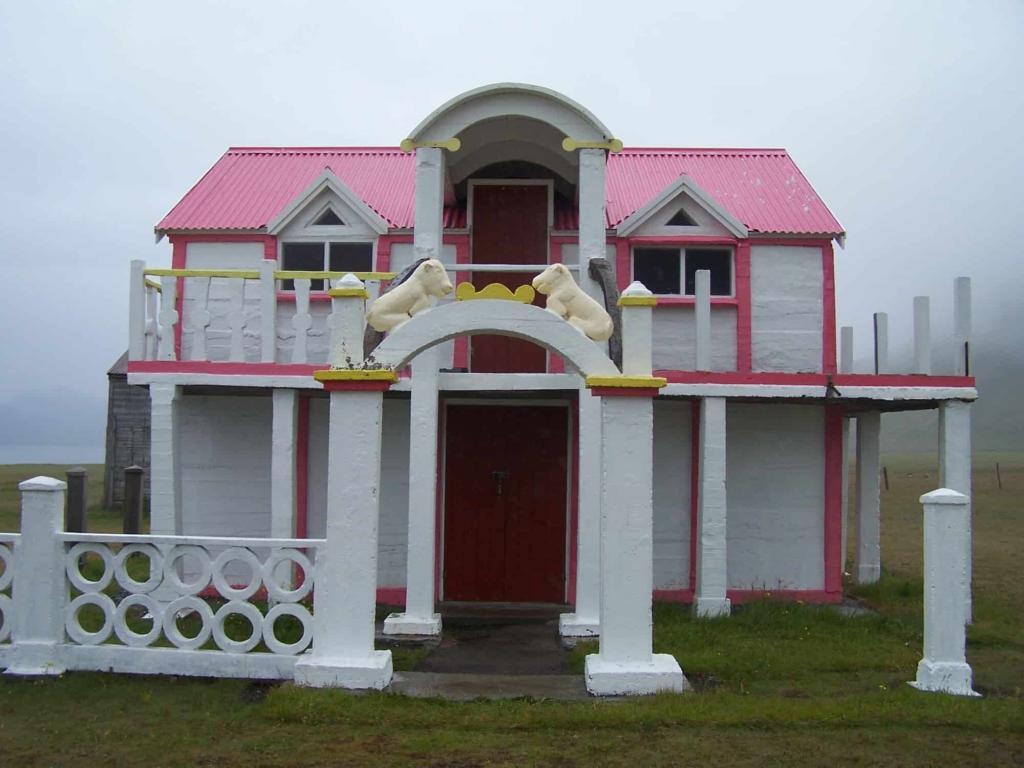
The artist with the heart of a child
Samúel never traveled outside of Iceland and never saw the buildings he replicated in his buildings. But perhaps this was his way to travel. Samúel is often called the artist with the heart of a child, and that seems fitting as his sculptures and buildings have a childlike quality. That contrasts with the pieces and the rather desolate landscape so striking.
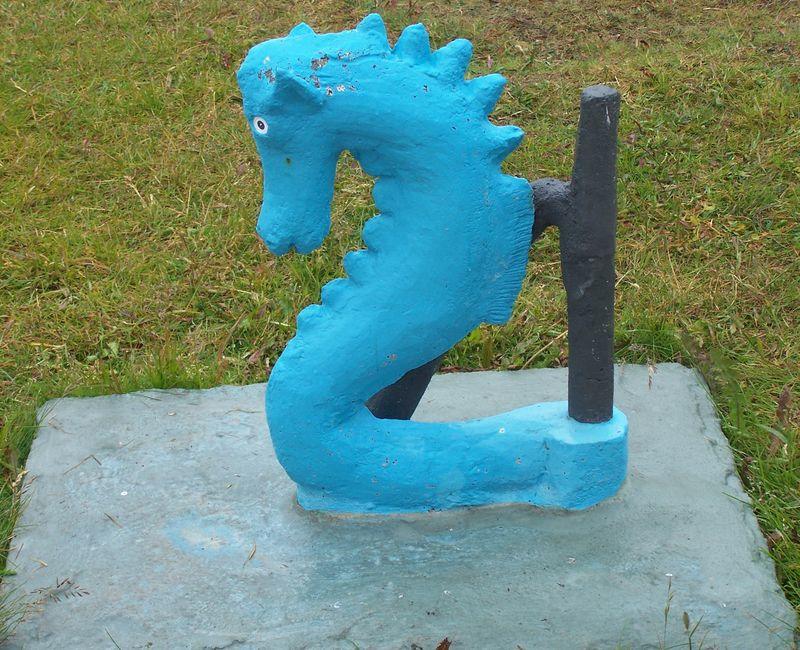
I initially visited Selárdalur back in 2013. I had expected to find the whole thing rather amusing, but somehow I was saddened by the entire thing. You could not help thinking about the hard work and loneliness involved in all sculptures and buildings. It was rainy and foggy that day, but somehow that added to the atmosphere.
The cathedral that Samúel Jónsson built on his own. Image from 2013.
Delightful renovation at Selárdalur
When I visited back in 2013, the harsh climate had been hard on Samúel’s art. There had been some attempts to renovate the pieces and the buildings, but still, the whole place looked a lit derelict, as you can see in the images above. Five years later, I was delighted to see the significant renovation at Selárdalur. An association of friends of Samúel has led a comprehensive rebuilding and protection of the art gallery at Selárdalur.
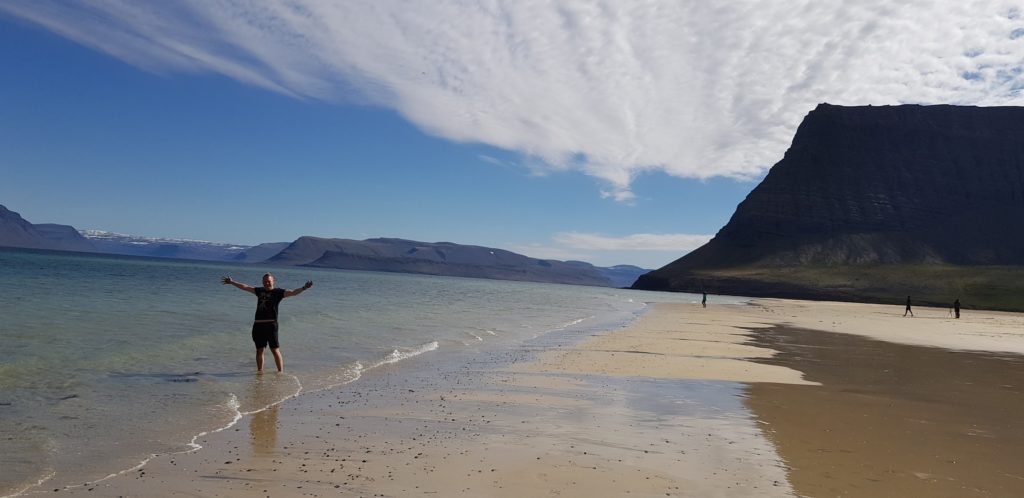
I returned to Selárdalur in 2018. My wife, Hallveig drove up to Selárdalur from Reykjavik. What brought us back to Selárdalur was a request from the Association of the friends of Samúel that she performed at a festival there called Sambafestival. She agreed, and I was eager to join.
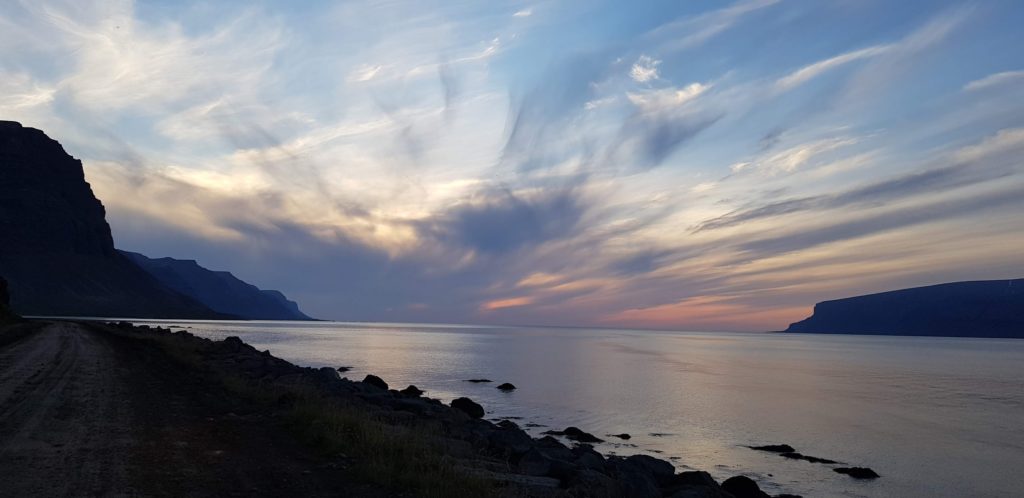
Samba festival is not what you think.
We assumed that would be a Samba band accompanying her. A samba party sure sounded fun, and I had polished my dancing shoes.
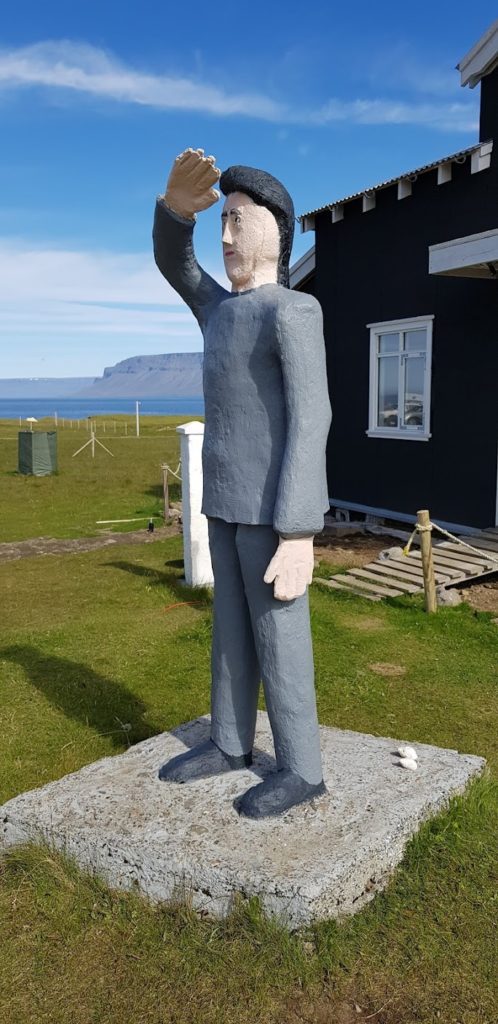
But when Hallveig asked about the band who would be accompanying her, the question surprised the festival organizers. The answer was, Samúel had a nickname, Sambi. So this is not a samba festival; it is the festival for Sambi. We found this misunderstanding hilarious.
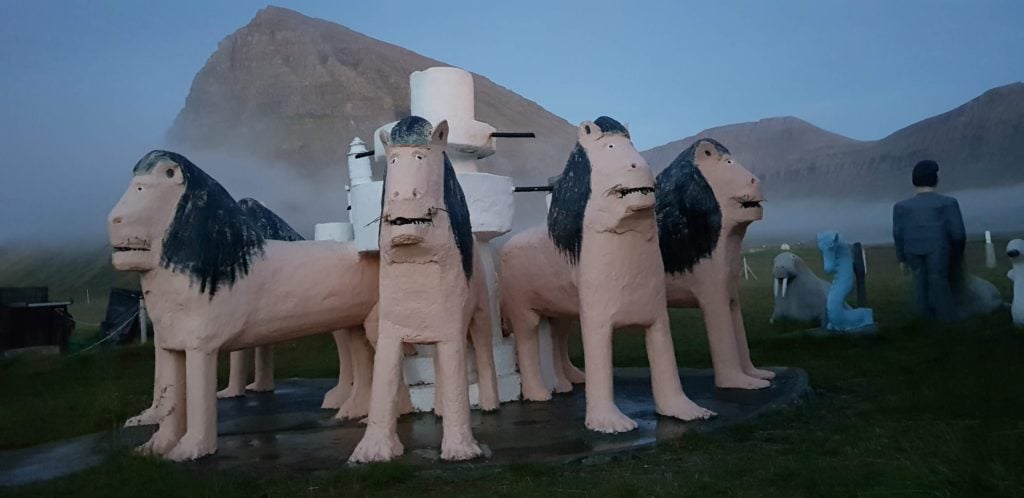
The festival was a minor affair; some 30 people participated in it. My wife sang beautifully, supported by a local guy playing the accordion. The accompanyist was found at the last minute, after all, there was no samba band available! We got an overview of the renovation of the place. We hiked to explore old fisherman’s huts that I imagine are ancient.
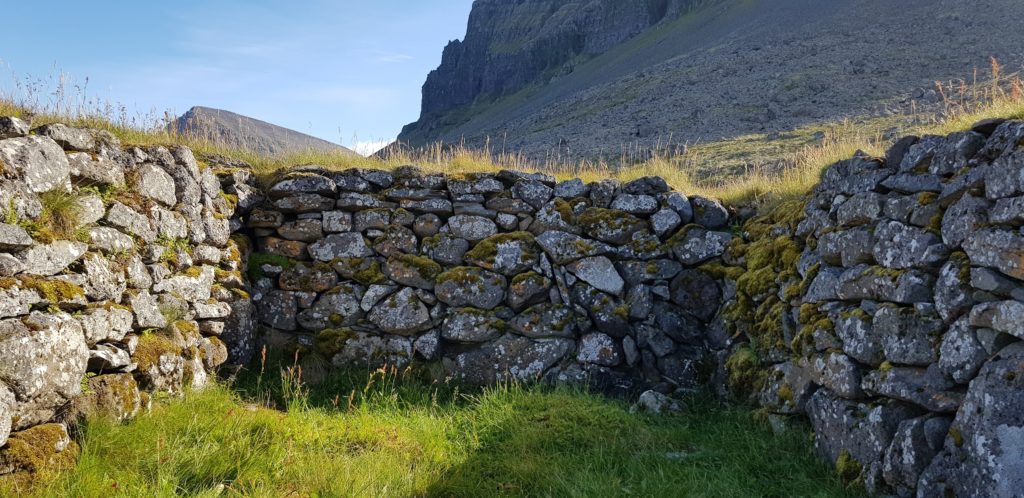
Icelandic musician Teitur Magnússon played in Samúel’s church at night. Then we headed to the beach where a bonfire of old wood removed from Samúel’s buildings was lit. It was a magical night, and I would imagine that Sambi was pleased by the festivities.
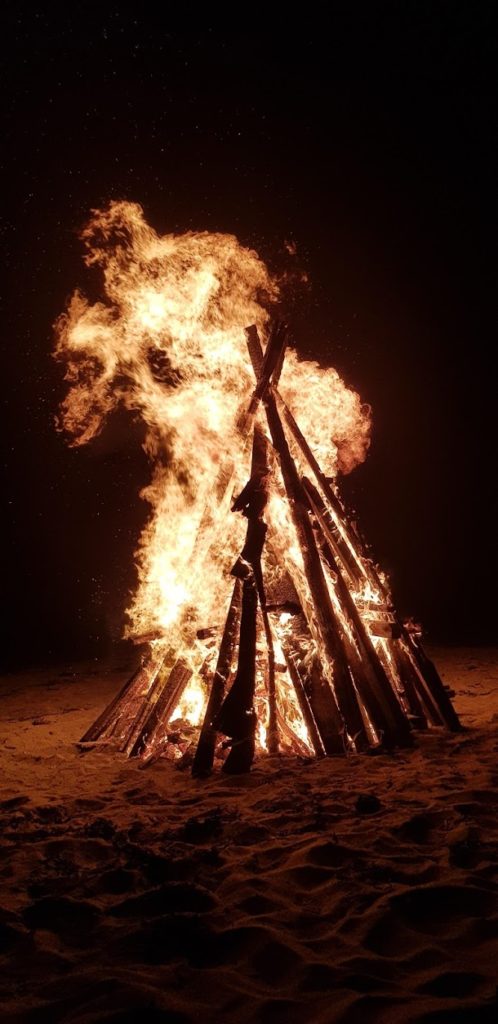
How to get there
It is a long drive to Selárdalur. Drive to the village of Bíldudalur and drive on the road 619. As with many roads in the Westfjords, it is a gravel road.
Written by Jón Heiðar Þorsteinsson


